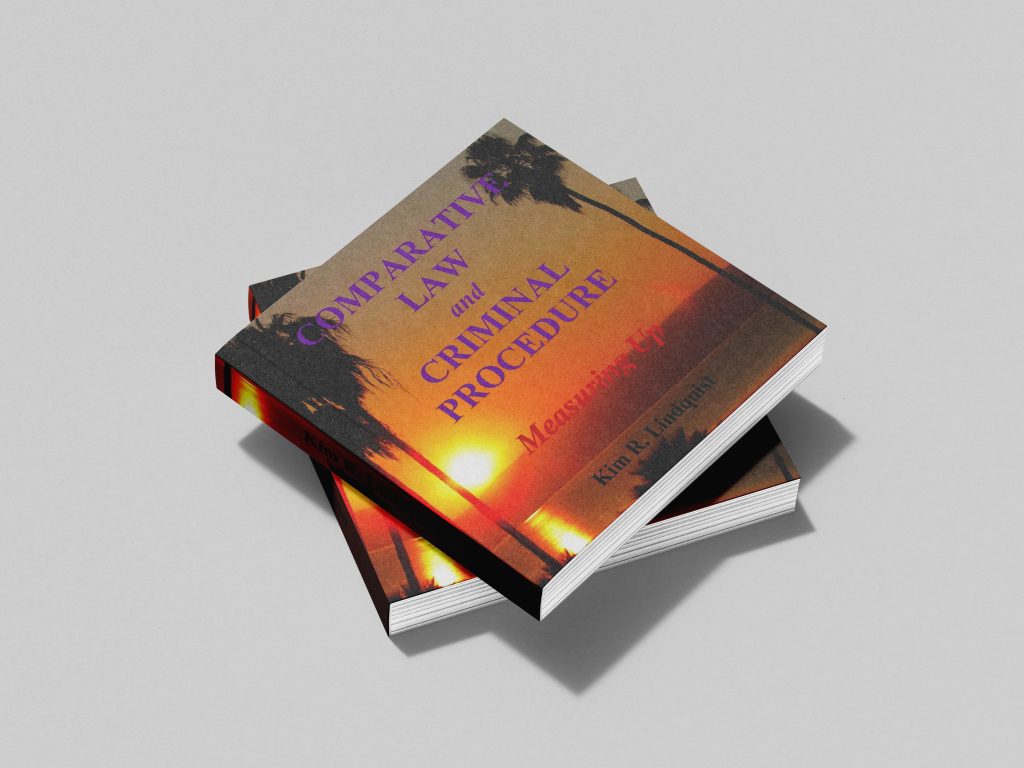COURSE 10:
THE ART OF ARBITRATION AND JUDGING
The purpose of this training is to train judges through advanced accusatory topics regarding their procedural functioning. These issues have to do with his accusatory role as arbiter and judge. Through this advanced training, the judge will better understand his accusatory role in order to better learn how to evaluate and judge the processes.
Target Population:
Judges
(54 reviews)
(60 students)
PowerPoint Presentations
El Arte de Arbitrar y Juzgar
Arte, Técnica y Proceso
El Arte de Investigar
El Arte de Litigar (para Fiscales)
El Modelo Acusatorio y sus Instituciones Constituyentes
El Arte de Litigar (para defensores)
La Burocracia y Procesos Penales
Required

Comparative Law and Criminal Procedure—Measuring Up; Kim R. Lindquist; United States; 2024
(This book, in effect, bridges the Author’s experience between the criminal justice systems of the Western Hemisphere with those of the Eastern Hemisphere. Moreover, it contains new developments in measuring the probative strength of cases and facts.)
Optional

The Elusive Rule of Law; Kim R. Lindquist; United States; 2021.
(As already noted, this book essentially constitutes the English version of the material otherwise presented in the Spanish publications as these relate to the comparative rule of law analysis.)

The Peril—from Colombia to Kabul; Kim R. Lindquist; Fulton Books, United States, 2020
(By means of the Author’s personal experiences over the years as a Federal Prosecutor and international legal consultant, this work addresses the danger of bureaucracy—the sacrifice of institution in favor of institution preservation—as the same applies to governments, private entities, and citizens otherwise. The book makes specific reference to the social phenomenon of the transition of criminal justice systems to the accusatory form as an aspect of the bureaucracy phenomenon.)
Supporting Materials
Document 1
The Futility of Training Accusatory Litigation Techniques within the Mixed/Inquisitorial Context;
~ Kim R. Lindquist; October 10, 2018 ~
Document 2
The Ideal Profile of the Prosecutor of the Military/Police Criminal Justice in Transition to the Accusatory;
~ Kim R. Lindquist; June 13, 2019 ~
Document 3
Techniques of Litigation;
~ Kim R. Lindquist; November 22, 2020 ~
Lessons
The Art of Refereeing and Judging
-
Lesson 1: The Judge and Penal Systems
-
Lesson 2: The Judge and the Sacred Procedural Demands
-
Lesson 3: Refereeing Techniques
- Lesson 4: The Art of Arbitration/Judging
Art, Technique and Process
The Art of Investigation
-
Lesson 1: The Meaning of "Investigate"
- Lesson 2: Practical Manifestations
The Art of Litigation (for prosecutors)
-
Lesson 1: The Role of the Prosecutor
-
Lesson 2: Characteristics of the Best Prosecutor
-
Lesson 3: Art, Technique, and Process
-
Lesson 4: Practical Manifestations of the Art of Litigation
- Lesson 5: A Square Pin in a Round Hole
The Accusatory Model and its Constituent Institutions
-
Lesson 1: Administrative Vehicles
-
Lesson 2: Administrative Structure
- Lesson 3: Practical Procedural Manifestation
The Art of Litigation (for defense attorneys)
-
Lesson 1: The Role of the Defense Attorney
-
Lesson 2: Characteristics of the Best Defense Attorney
-
Lesson 3: Art, Technique, and Process
-
Lesson 4: Practical Manifestations of the Art of Litigation
- Lesson 5: A Square Pin in a Round Hole
Bureaucracy and Penal Systems
-
Lesson 1: The Meaning of "Bureaucracy"
- Lesson 2: The Impact of Bureaucracy
Tests
During and at the end of the module recipients will be required to take and successfully pass rigorous written and oral style exams.
Certification
Upon successful completion of all exams related to the module, the student will be certified with respect to the subject addressed.